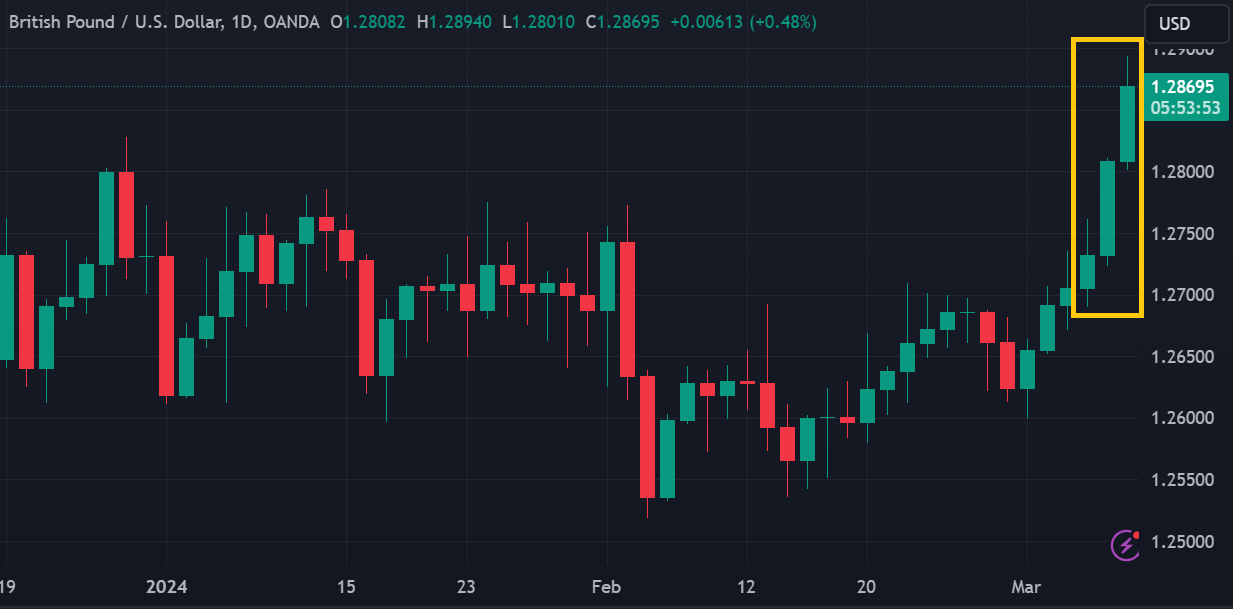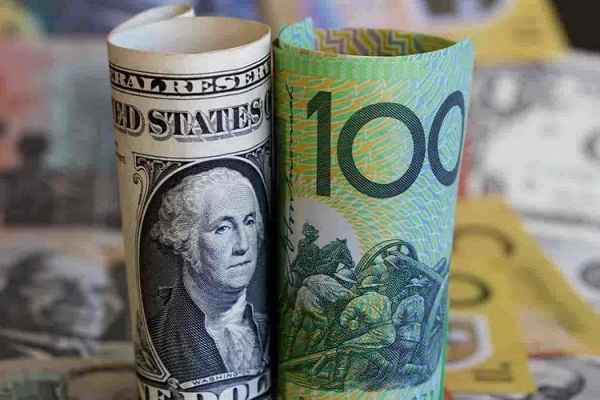The Pound Sterling exchange rate strengthened as markets expected the Federal Reserve and European Central Bank to cut interest rates earlier than the Bank of England.
The Pound Sterling was the champion in New York session trading on Friday (8/March) by crippling its two main rivals. GBP/USD reached its highest level since June 2023 at 1.2890s, while EUR/GBP again inhabited its lowest range since August 2023 at 0.8500s. The market expects the Federal Reserve and the European Central Bank to cut interest rates earlier than the Bank of England.

There was no high-impact economic data to catalyze from the UK this week. However, Sterling was buoyed by the latest UK fiscal plan and the prospect of higher interest rates in the longer term.
Data showed market participants expect the BoE to start cutting interest rates in August. On the other hand, the ECB President has signaled a rate cut starting June 2024. The release of US Nonfarm Payroll data tonight makes the market increasingly confident that the Fed will cut interest rates starting in June.
"We think the BoE is likely to wait longer than the Fed and ECB to start easing policy," said Karsten Junius, chief economist at J. Safra Sarasin Sustainable Asset Management, "The main reason for this delayed reaction is that so far, the decline in (UK) services inflation and wage growth has been very limited, suggesting that underlying inflation may be stiffer than elsewhere."
Traders and investors will watch a series of UK economic data releases next week for further confirmation, particularly the Gross Domestic Product (GDP) and wage inflation reports. If none of the actual figures miss by too much, the BoE's interest rate expectations could stabilize.
On Wednesday, UK Finance Minister Jeremy Hunt presented a spring budget containing a series of minor tax cuts with no new surprises. Unlike the furor sparked by his predecessor, Hunt stuck to the fiscal mandate in line with market expectations. His stance eased market anxiety over the UK's now $3 trillion debt burden while fading concerns over the side effects of fiscal policy on the BoE's interest rate policy.

 Dedicated FREE FOREX VPS
Dedicated FREE FOREX VPS Free FOREX Virtual Private Server
Free FOREX Virtual Private Server MT4 Demo Contest, Get $500
MT4 Demo Contest, Get $500 Sign Up for an Account, Claim 60% Deposit Bonus
Sign Up for an Account, Claim 60% Deposit Bonus Free MT4/MT5 VPS 2024
Free MT4/MT5 VPS 2024 Send E-mail and Get Free Merchandise
Send E-mail and Get Free Merchandise $1K Refer a Friend Bonus for Pepperstone Pro clients
$1K Refer a Friend Bonus for Pepperstone Pro clients Maximize Your Earnings with 100% Deposit bonus
Maximize Your Earnings with 100% Deposit bonus Trade to Win, $5,000 Monthly Demo Contest
Trade to Win, $5,000 Monthly Demo Contest Claim 30% + 15% Deposit Bonus from LiteFinance
Claim 30% + 15% Deposit Bonus from LiteFinance






